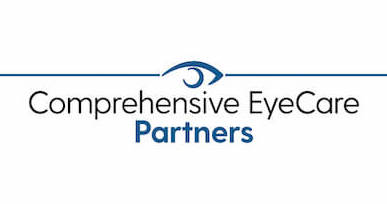
November is Diabetic Eye Disease Awareness Month. People with diabetes, especially those that are older, have a higher risk of a variety of eye-related conditions.
This includes glaucoma and cataracts. The eye condition most closely linked to diabetes, though, is diabetic retinopathy.
The condition is a direct result of having diabetes. If you have diabetes, it’s important to know what possible issues may arise with your vision and to be vigilant about your eye health.
Diabetic Retinopathy
Diabetic retinopathy occurs when the blood vessels connected to the retina are cut off from the rest of the body’s blood supply. This usually happens when a diabetic’s blood sugar levels, or glucose, are too high.
In the early stages of the disease, there are no symptoms. The blood vessels on the retina may begin to swell and leak.
You may not notice any pain or difference in your vision. But in later stages of the disease, as blood vessels start to grow abnormally in the retina, it can cause scar tissue to develop. This can then lead to gaps in vision with areas of the retina that suffered damage.
Diabetic retinopathy is one of the leading causes of blindness in patients that are 60 and older. A large reason for this is because vision loss from diabetic retinopathy is permanent.
But you can preserve your vision if you spot the disease in the early stages. Since no symptoms are present in the early stages, the only way to do this is through having regular eye exams.
The higher your risk, the more often your eye doctor will want you to see you and examine your eyes.
The Risk For Developing Other Conditions
Diabetes increases your risk for eye conditions besides diabetic retinopathy. It also puts you at risk for conditions like glaucoma and cataracts.
There are other factors that increase your risk for any of these eye conditions including:
- Tobacco use
- Obesity
- High cholesterol
- High blood pressure
- Family history
- Being of African-American, Native American, or Hispanic descent
- Being over 40
- Uncontrolled blood sugar levels
- Having diabetes for 10 years or more
Some of these factors can be changed, but others cannot. You can talk to your doctor about your personal risk based on your medical history.
You can take steps to lower your risk where possible, but the most important thing is having regular eye exams. When spotted early, treatment can slow down damage to the retina and potentially save your vision.
Can Diabetic Eye Disease Be Prevented?
There is no way to prevent any diabetic eye disease, but there are ways to lower your risk. This means doing your best to live a healthy lifestyle.
Don’t smoke, eat right, exercise, and keep your diabetes under control. Diabetic retinopathy is more common in patients with consistently high blood sugar levels.
Because there’s no way to prevent diabetic eye disease, early detection through regular eye exams is key. There are treatment options for most diabetic eye conditions, from medication to surgery.
Your doctor can work with you to find the best treatment or combination of treatments right for you. Your primary responsibility is to be aware of your risk for diabetic eye disease and to see your eye doctor regularly.
Ready to make your eye health a priority? Schedule an appointment at Shepherd Eye Center in Las Vegas, NV today!


